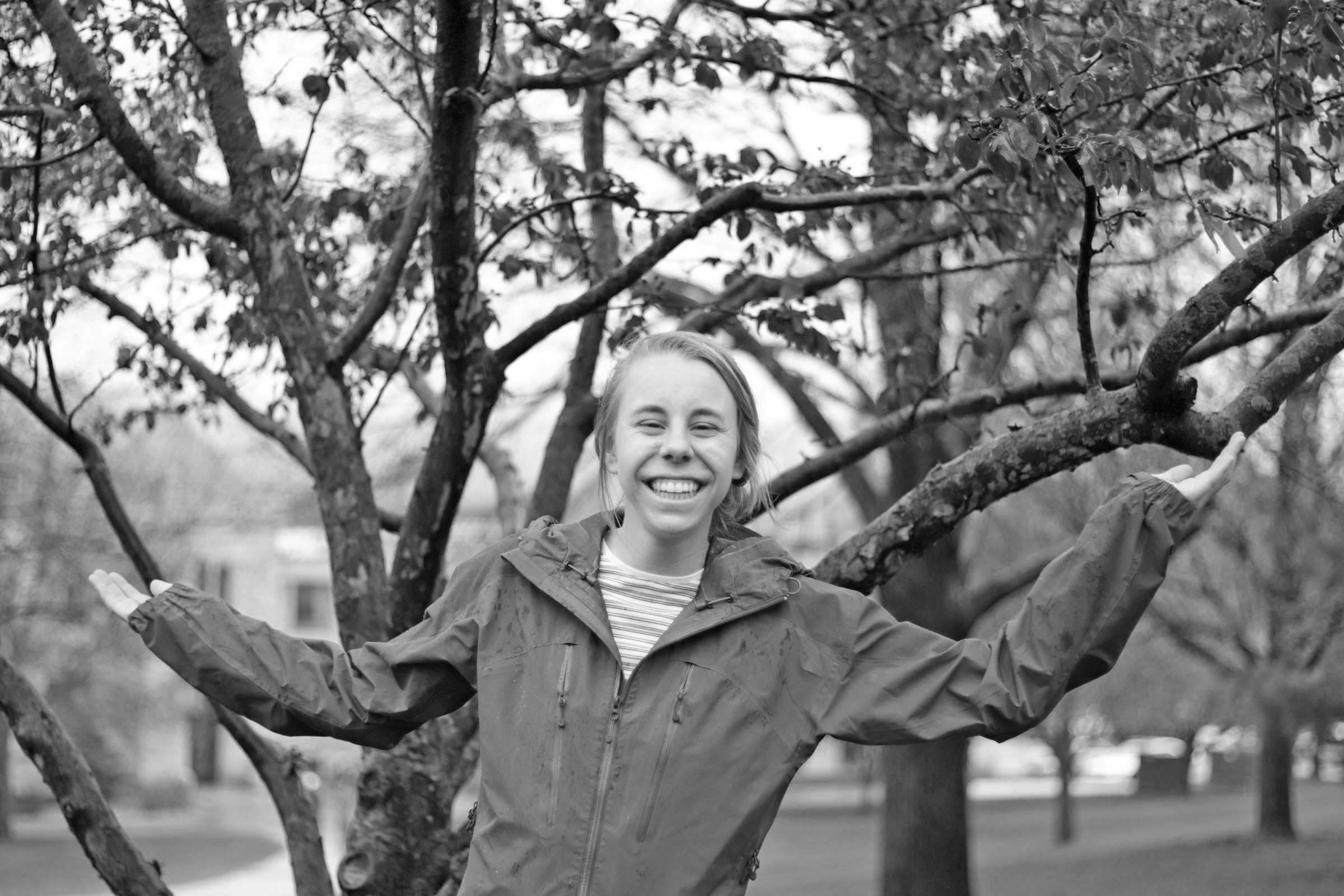Junior Biology and Environmental Studies Double major and Geographic Information Systems Minor Brianna “Bri”Jol is an avid environmental sustainability advocate and active student on the Gustavus campus.
Jol is involved in various organizations, including the Environmental Action Coalition, the Nobel Planning Committee, the Building Bridges planning team as a member working for Public Relations Outreach, in the Arboretum as a student worker, with Gustie Greeters as a coordinator for next year, and in the biology department as a Teaching Assistant.
Jol is a prominent environmental advocate in the Gustavus community. She knew she wanted to focus in some way on environmental science before she even came to college. In her senior year, “college was on the back burner. I only looked at two schools, the University of Washington Seattle and Gustavus,” Jol said.
Those two options were very different, but each offered a program in environmental sciences that was appealing to Jol.
Ultimately, Jol decided to stay closer to home so that she could be better connected to her brother as he grew up.
She had heard great things about the Nobel Conference and had found many “serendipitous connections” to Gustavus within all different areas of her life.
As a result of her coursework here at Gustavus, Jol has learned that “everything is interconnected” and there are ways to bring environmental action and social justice back into every action and connection students make.
One of the main places at which Jol has learned about this interconnection was in her Climate History class with Professor David Obermiller. It was there that Jol learned the importance of integrating social awareness with environmental initiatives.
When asked about her favorite memories in her involvements on campus, Jol described the initial formation of the Environmental Action Coalition (EAC).
“Before EAC had even formed, the number of people interested in creating a coalition to work toward greater sustainability awareness, climate justice, outreach, and creating a community was just exciting. I remember being there with 30-35 people sitting together talking about this,” Jol said.
One of the group’s first efforts was to increase waste awareness at the 2018 Nobel Conference.
Members of the EAC “stood around at the Nobel conference and Homecoming to help clarify where different waste was going. It helped us get our footing as an organization,” Jol said.
Jol felt this was a very exciting opportunity, as the group had gotten their iconic green shirts only days before. This project encouraged EAC members to learn about waste systems on campus, while also having an opportunity to educate the rest of the student body to make change.
After graduation, Jol hopes to participate in an “environmental education program or learning centers,” where she would “have a chance to try the education aspect of climate change and talk with young people to see what they are thinking about our planet.”
Additionally, Jol knows that she wants to be outside. She seeks to apply the skills she has learned and bring them into the actual environment to make change and learn more about our planet and our future.
Jol works regularly with first-year students as a Gustie Greeter. “[First-years] should try something new and explore different areas to see the inner-workings of different parts of the institution by meeting different people and interacting with different policies,” Jol said.
Jol encourages students of all years interested in making a difference in environmental protection to look for connections to make our way of life more sustainable.
“No matter your department or interest, you can connect to environmental sustainability and climate justice. Don’t look for how you can change your interests or mold them to fit what we already have, recognize that you have environmental interests see who you can connect with to make change,” Jol said.
